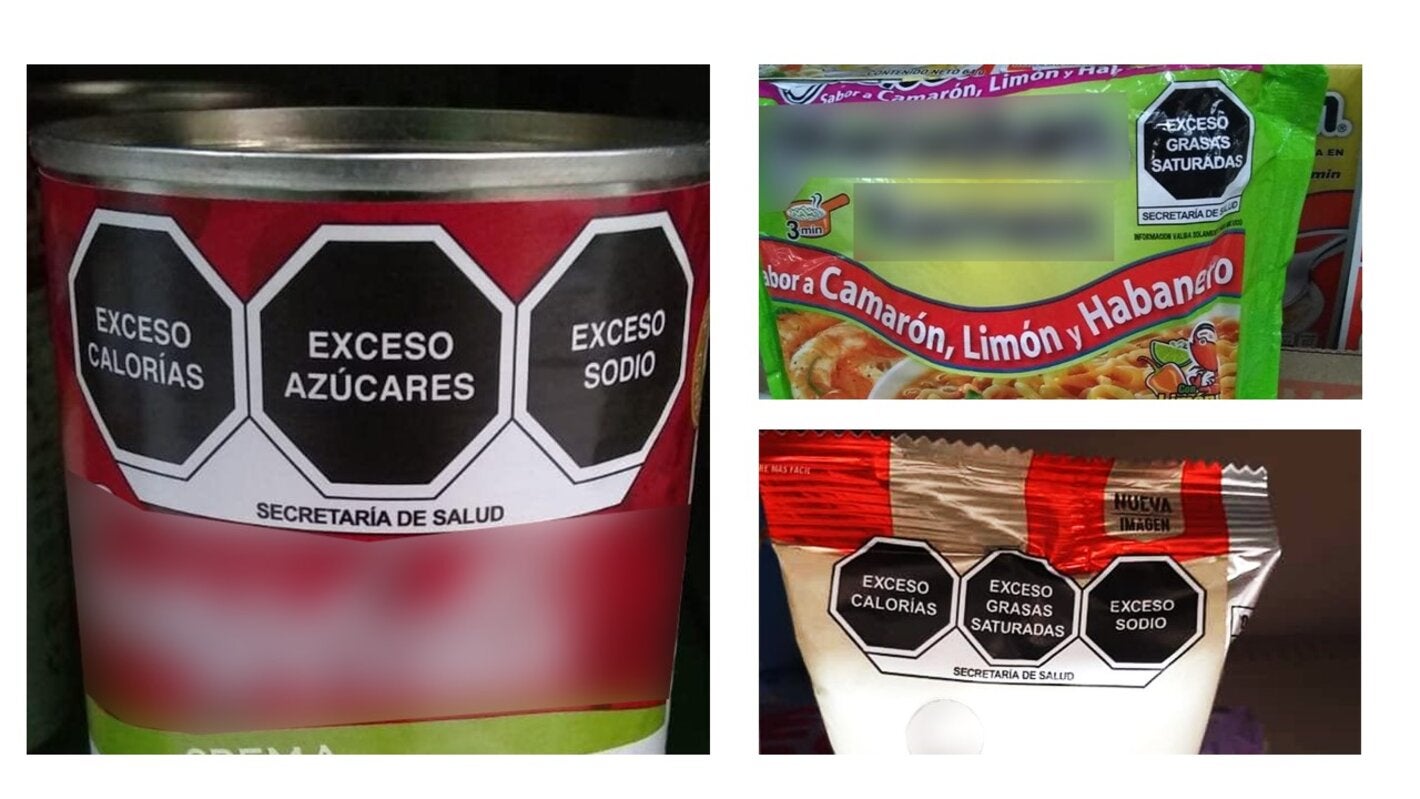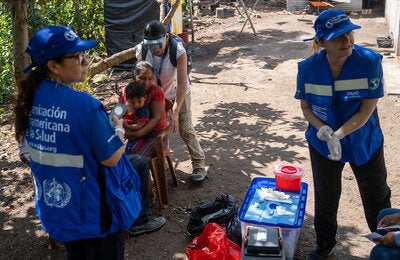
Washington, D.C., 29 September 2020 (PAHO/WHO) - Mexican consumers are beginning to see warning labels on packages of food and drink products sold at supermarkets and grocery stores. These labels – black octagons with white lettering on the main face of the package– indicate whether the product is excessive in sugars, sodium, saturated fats, trans-fats and/or calories. This is the result of Mexico’s adoption of a front-of-package warning labeling system, considered the most advanced and comprehensive regulation worldwide.
As a result of this public health innovation, the Government of Mexico received an award from the United Nations Inter-Agency Task Force (UNIATF) in September 2020, which recognizes outstanding contributions for the prevention and control of NCDs, mental health or sustainable development goals associated with NCDs.
Mexico front-of-package labeling system
In October 2019, the Mexican parliament approved a law leading to the adoption of an effective front-of-package labeling system, and in January 2020, the amendment to the Official Mexican Standard on the labeling specifications for pre-packaged food and non-alcoholic drink products was also approved (NOM-051). This norm now provides clear and simple information about the content of products that may adversely affect diets and health, by means of the application of front-of-package warning labels indicating whether the product is excessive in critical nutrients (sugars, sodium, saturated fats, trans-fats) and/or calories.
These normative achievements including warnings about critical nutrients; front-of-package messages about the presence of non-sugar sweeteners (edulcorantes); the use of the PAHO Nutrient Profile Model, and restriction of the use of persuasive devices on packages (e.g. nutrition claims such as high in vitamin C, high in calcium; cartoon characters; and promotions), have resulted in recognition of the Mexican food regulation on labeling as the most advanced standard globally.
Advances in the Americas
Chile, Peru, and Uruguay have previously also implemented front-of-package warning labels. Mexico, therefore became the fourth country in this Region to enact a front-of-package (FOP) warning labeling system, and the regulation was published in March 2020. Countries such as Brazil, Colombia and Canada, among others, are in the process of adopting similar systems. The Americas is now one of the most advanced Regions globally, in implementing a key measure aimed at allowing consumers to correctly, quickly, and easily identify products containing excessive amounts of critical nutrients that increase risk of noncommunicable diseases (NCDs). These policies are consistent with the Plan of Action on the Prevention of Obesity in Children and Adolescents adopted by the PAHO Member States in 2014.
The UN Special Rapporteur on the right to health recently noted in an official statement on the adoption of FOP warning labeling that the right to health is inclusive of appropriate health care and an adequate supply of safe food and nutrition. He emphasized the responsibility of States to take necessary measures, such as the adoption of front-of-package warning labeling on unhealthy food and drink products, to protect the right of the population to health.
Moving forward in spite of challenges
Although progress has been evident through the Region of the Americas, there continue to be challenges to the adoption of food labeling measures. With the endorsement of the UN Special Rapporteur on the right to food, and the Chair and Vice-Chairs of the UN Working Group on the issue of human rights and transnational corporations and other business enterprises, the UN Special Rapporteur on the right to health recently stated that, "the food and beverage industry continues to strongly and extensively oppose front-of-package warning labeling regulations. This includes covering up the harmful effects of food products with excessive amounts of critical nutrients through multiple tactics, including sponsoring research to downplay links to health problems. Misinformation and pressure from the food and beverage industry interferes with States’ efforts to adopt public health laws, regulations and policies."
Overcoming these obstacles and continuing to move forward is essential to improving the health of our populations and reducing the burden of NCDs. This is now critically important, given the increased risk of people with NCDs and associated risk factors such as overweight and obesity, becoming severely ill or dying from COVID-19 infection. And as the UN Rapporteur on the right to health stated, "front-of-package warning labeling is a key measure for States to tackle the burden of NCDs." The time to act is now.



